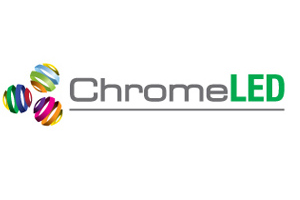
ChromeLED
ChromeLED Corporation is an ISO certified LED solution provider for electronic industry. The primary focus is to service customers globally by manufacturing innovative products with competitive cost while maintaining our finest quality standard. ChromeLED worldwide headquarters locates in greater Los Angeles area with manufacturing plants in Taiwan and China. Utilizing automated manufacturing processes, ChromeLED can produce 300 million LED lamps and 100 million LED displays per month while keeping the highest quality and consistency.